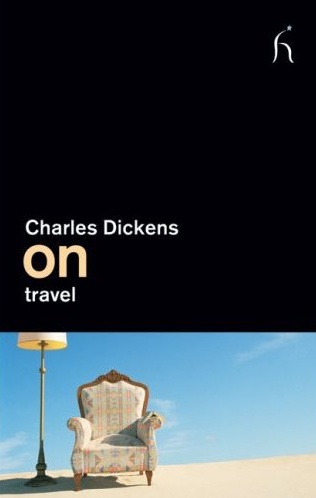Charles Dickens: The First Great Travel Writer?
Travel Books: Frank Bures digs into the legendary author's travel writing and finds some surprises
05.25.10 | 11:18 AM ET

Back when the world wasn’t so known, travel writing wasn’t so much about being entertaining, or about letting the writer’s persona run wild. The point was to describe the world rather than to dance upon its stage. The purpose was to transport people to another part of the world in an edifiying, Victorian kind of way. It was something to make readers who couldn’t see the world become more worldly. It was more education than entertainment or art.
That’s certainly the type of writing I expected when I opened this new compilation of Charles Dickens’ travel writing, which dates from the mid-1800s. But to my surprise, I found something else—something that makes me think Charles Dickens may have been the first great modern travel writer.
Sure, there were a few long, dry descriptive passages. In other parts, though, it was anything but the quasi-anthropological reportage of Marco Polo or Ibn Battuta. There was warmth and dialogue and humor. Suddenly I found myself chuckling along with the author as he sailed on a steamer across the Atlantic, or rode the rails into Paris, or traveled around Italy, or simply observed the chicanery of London’s cab drivers, many of whom would be shipped off to Australia. It felt real. It felt like life. The people spoke and were flawed, and I could feel the paradoxes in their lives.
This was not just Dickens traveling and reporting back to civilization. This was Dickens bringing us along as he and the people around him felt their way through the world. For example, when he traveled by ship from England to America, he noticed “a mysterious, runaway kind of couple,” of whom the gentleman “carried more guns with him than Robinson Crusoe.”
“I remember,” Dickens writes, “that he tried hot roast pig and bottled ale as a cure for seasickness; and that he took these remedies (usually in bed) day after day, with astonishing perseverance. I may add, for the information of the curious, that they decidedly failed.”
These droll passages make Dickens’ travel writing feel lively and modern. He is not merely talking about places. He is bending his ear for the absurd. He is reflecting on beauty and aging. He is turning his eye to the dynamics between people.
“And now,” he writes as his train rolls farther into France, “I find that all the French people on board begin to grow, and all the English people begin to shrink. The French are nearing home, and shaking off a disadvantage, whereas we are shaking it on.”
It’s a small sketch of a feeling that remains as true now as it was then. This layering of imagination on reality make his tales feel rich and real. In reading this book, I was reminded of something I’d forgotten I knew.
Years ago, when I first started writing, I thought I wanted to be a nature writer. I liked nature. I liked writing. And it was in vogue. It seemed perfect.
Then I realized that nature writing was kind of ... boring. If I had to keep reading landscape descriptions, never mind write them, I was going to have to shove hot needles under my fingernails to stay awake.
But I did notice that my interest was piqued whenever there were people on the page: Edward Abbey’s lively dealing with the Indians in Havasu; Terry Tempest Williams’ recounting of her mother’s battle with cancer; Barry Lopez’s interludes with ranchers and hunters.
It seems remedial now, and it is, but it’s something Dickens seemed to realize long ago: Travel is not that interesting. People are. Stories come alive only when there are people in them. Travel and nature writing both purport to be about physical things. But they are really about us, and to the extent that they aren’t, they are simply bad, or boring, writing.
This slim selection of Dickens’ travel writing is anything but that. In it, he is much more concerned about the people who he meets on his way than with the places themselves. And that, to me, is what makes any travel writing worth reading.
“The more man knows of man,” Dickens writes, “the better for the common brotherhood among men.”![]()